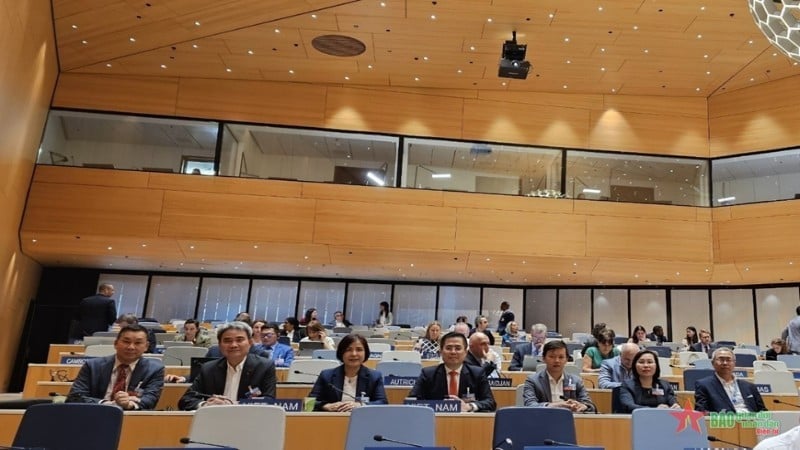
Vietnam joined WIPO in 1976. A decade later, the visit of WIPO Director General Árpád Bogsch (1986) opened a period of comprehensive cooperation. Since then, many generations of WIPO leaders have visited Vietnam, including Mr. Francis Gurry (2010, 2017) and the upcoming Director General Daren Tang (2025).
The business trips not only have diplomatic significance but also directly contribute to shaping Vietnam's intellectual property system, linking national policies with global trends.
In each working session, the Ministry of Science and Technology affirmed its determination to make Vietnam a pioneer in ASEAN in innovation. The National Office of Intellectual Property has concretized its commitment with practical projects: data digitization, human resource training, and building a network of Technology and Innovation Support Centers (TISC).
Some of the outstanding achievements of cooperation, bringing about many clear results, can be mentioned as the first time, the field of intellectual property was identified as an important content in the National Development Strategy, through the promulgation of the Intellectual Property Strategy to 2030; The Global Innovation Index (GII) 2025 shows that Vietnam ranked 44/139 economies , 2/37 in the group of low-middle income countries.
For 15 consecutive years, Vietnam has consistently had higher innovation results than its development level, demonstrating its efficiency in converting input resources into innovative outputs. Vietnam is one of the three countries (China, Vietnam, Ethiopia) with the fastest growth in labor productivity in the 2014-2024 period.
From 2022, Vietnam will pilot a set of provincial innovation indexes (PII), and officially announce it nationwide by 2023. This is the first local innovation measurement model in the region, highly appreciated by WIPO and recommended for replication in other countries. PII helps reflect the picture of innovation capacity of each province/city, creating a basis for localities to formulate more practical policies; Digital transformation of management: The Intellectual Property Office operates the IPAS system, digitizing more than 600,000 patent, trademark, and industrial design records; developing more than 50 TISC centers;
Vietnam has participated in 15 international treaties on intellectual property, of which the most typical are: Patent Cooperation Treaty (1993), Madrid Protocol (2006), Hague Agreement (2019) helping businesses expand protection of patents, trademarks, industrial designs to the global market with simple and quick procedures....
These achievements clearly demonstrate the "constructive" role of the Ministry of Science and Technology in the process of turning intellectual property into a tool to promote growth.
Vietnam has not only been a beneficiary of WIPO support but has also been increasingly proactive in participating in WIPO's specialized committees. Vietnam has held important positions at WIPO: Chairman of the Coordination Committee (2014-2015), Chairman of the General Assembly (2018-2019). Recently, Vietnam participated in the diplomatic conference to adopt international documents on genetic resources, traditional knowledge and the Industrial Design Law Treaty.
To achieve that position, Vietnam has relied on two fundamental pillars: institutions and human resources. The Ministry of Science and Technology plays a strategic advisory role, synchronizing national laws with international standards. The Intellectual Property Strategy to 2030 places intellectual property as a component of the national development strategy; the PCT, Madrid, and Hague systems help businesses reduce costs and procedures when expanding intellectual property protection globally. The Intellectual Property Office implements IPAS, improving the quality of appraisal and application management - creating transparency and trust.
Regarding human resources, WIPO has supported hundreds of Vietnamese officials through scholarships and training. The National Office of Intellectual Property has coordinated to expand the TISC network, spreading intellectual property skills to institutes, schools and businesses. In the future, developing a team of experts in appraisal, valuation and commercialization of intellectual property will be the key to turning knowledge into economic value.
It can be seen that, since the first visit of WIPO leaders in 1986, Vietnam-WIPO cooperation has become a comprehensive, strategic partnership. With the attention and direction of the Government, the Prime Minister, the leadership of the Ministry of Science and Technology and the implementation of the National Office of Intellectual Property, Vietnam has not only consolidated its position on the global innovation map, but also built a modern intellectual property ecosystem, closely linked to socio-economic development.
Source: https://nhandan.vn/kien-tao-he-sinh-thai-so-huu-tri-tue-qua-hop-tac-chien-luoc-voi-wipo-post909982.html


![[Photo] Opening of the World Cultural Festival in Hanoi](https://vphoto.vietnam.vn/thumb/1200x675/vietnam/resource/IMAGE/2025/10/10/1760113426728_ndo_br_lehoi-khaimac-jpg.webp)
![[Photo] Unique Phu Gia horse hat weaving craft](https://vphoto.vietnam.vn/thumb/1200x675/vietnam/resource/IMAGE/2025/10/10/1760084018320_ndo_br_01-jpg.webp)



![[Photo] Ho Chi Minh City is brilliant with flags and flowers on the eve of the 1st Party Congress, term 2025-2030](https://vphoto.vietnam.vn/thumb/1200x675/vietnam/resource/IMAGE/2025/10/10/1760102923219_ndo_br_thiet-ke-chua-co-ten-43-png.webp)













![[Photo] Opening of the World Cultural Festival in Hanoi](https://vphoto.vietnam.vn/thumb/402x226/vietnam/resource/IMAGE/2025/10/10/1760113426728_ndo_br_lehoi-khaimac-jpg.webp)



















































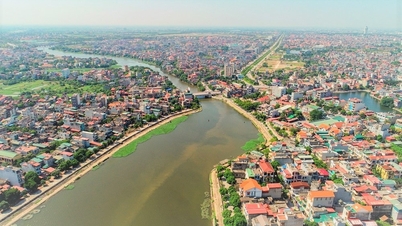


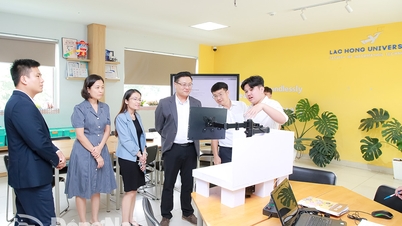

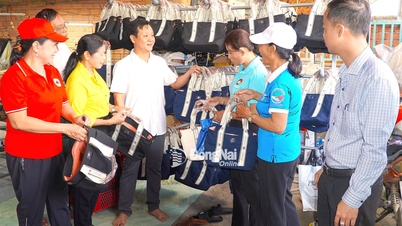
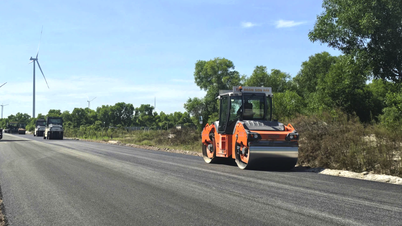
















Comment (0)